Environment day: In southern Iraq, mangroves help restore an ecosystem hit by harsh weather
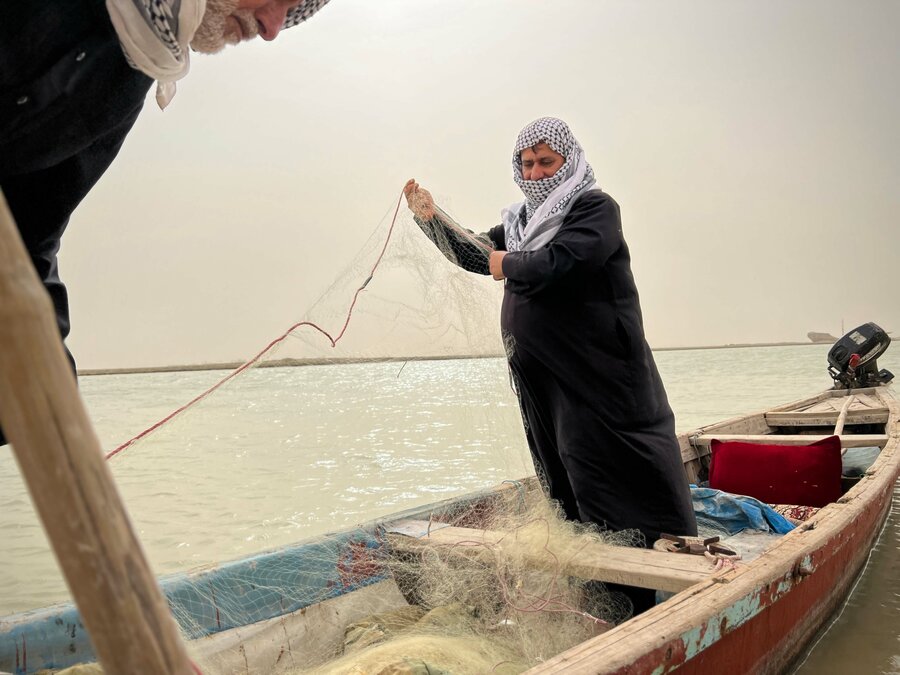
The scorching sun heats up bustling Basra. Outside the city, in the contrasting calm of the tidal flats, Hakim untangles his fishing net with the help of his brother, Abed Al Hasan.
The men, both in their fifties, grew up around the marshes of southern Iraq, a vibrant ecosystem of wetlands that are currently beset by the toxic combined effects of the climate crisis and years of conflict.
“I’ve never had to swallow a single pill of medicine my entire life,” Hakim says. He speaks of a time when the marshes were his haven of fresh air and water, and a reliable source of food and income.
However, in 2003, Hakim made the difficult decision to leave the marshlands and move to the tidal flats region in Basra to continue doing what he knows best: fishing.
But he now finds it harder to find enough fish to support his family, and he is forced to sell what little he catches at low prices that people might afford.
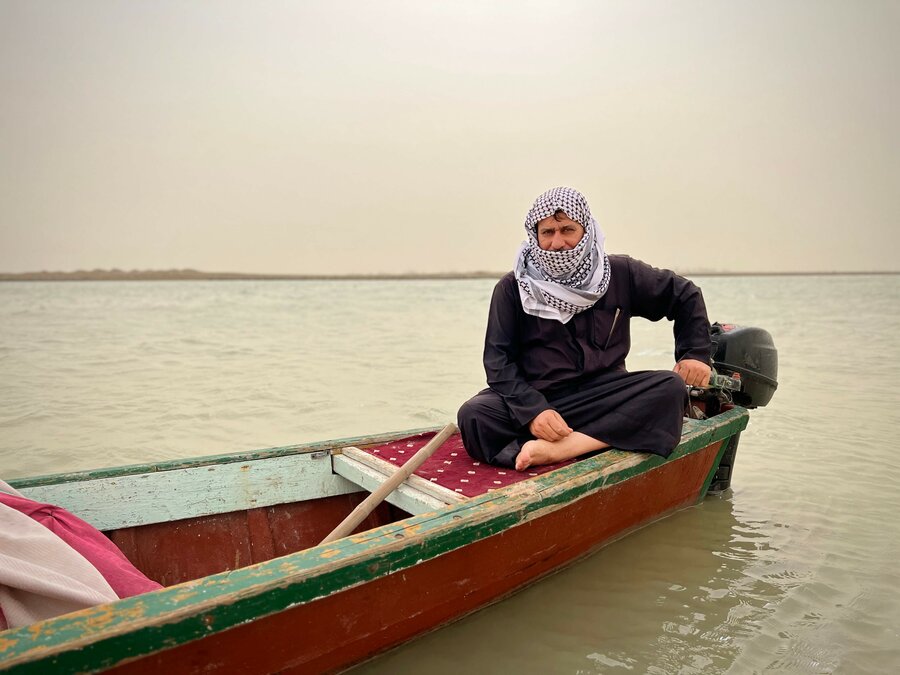
Iraq, which is experiencing worsening drought seasons, is among the top five countries most affected by the climate crisis around the world and is the 39th most water-stressed country globally. The Tigris-Euphrates River Basin – a river system shared between Turkey, Syria, Iraq, Iran and Kuwait – is facing prolonged dry periods, worsened by water diversions and dam construction upstream.
By the end of last year, drought had forced 68,000 people – including Hakim and his family of eight – from their homes in central and southern Iraq.
Compounded by rising food prices, dry water streams and salinity, the scarcity of fish has affected access to food in Iraq, even for families such as Hakim’s, who live by the sea. Basra, a region known for its love of fish, has been feeling the impact. “Fishing here at one point will be a profession of the past,” Hakim says, gazing out at the waters.
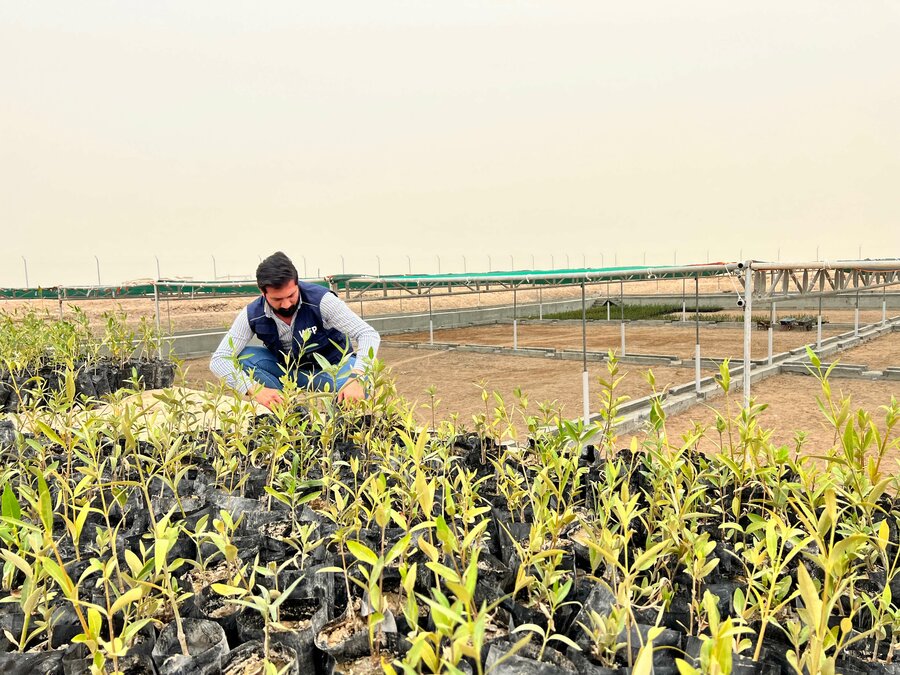
The World Food Programme (WFP) is stepping in, collaborating with the government of Basra, Iraq’s Ministry of Environment, and the University of Basra’s Marine Science Centre to do what it can to reverse this trend.
WFP has established a mangrove nursery in the tidal flats region, with the capacity to produce a million mangrove seedlings annually.
Mangrove oysters mean food security for a family in Ecuador
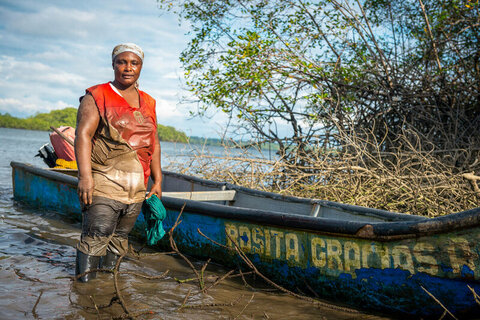
Mangroves are ideal for such an environment. They thrive on salty water and play a crucial role by serving as habitats for a wide array of fish species. They also act as a protective shield for crops and human settlements against the damaging forces of storm surges and erosion. Additionally, these ecosystems serve as natural filters, effectively removing pollutants that could contaminate vital food sources.
“Planting mangroves means a better environment, a better climate and, eventually, a better life,” says Hakim.
WFP and its partners have set an initial target of planting one million mangrove samplings per production cycle, aligning with the Government of Iraq’s commitment to planting 5 million trees by 2028 (in response to the climate crisis, as announced at the Iraq Climate Conference).
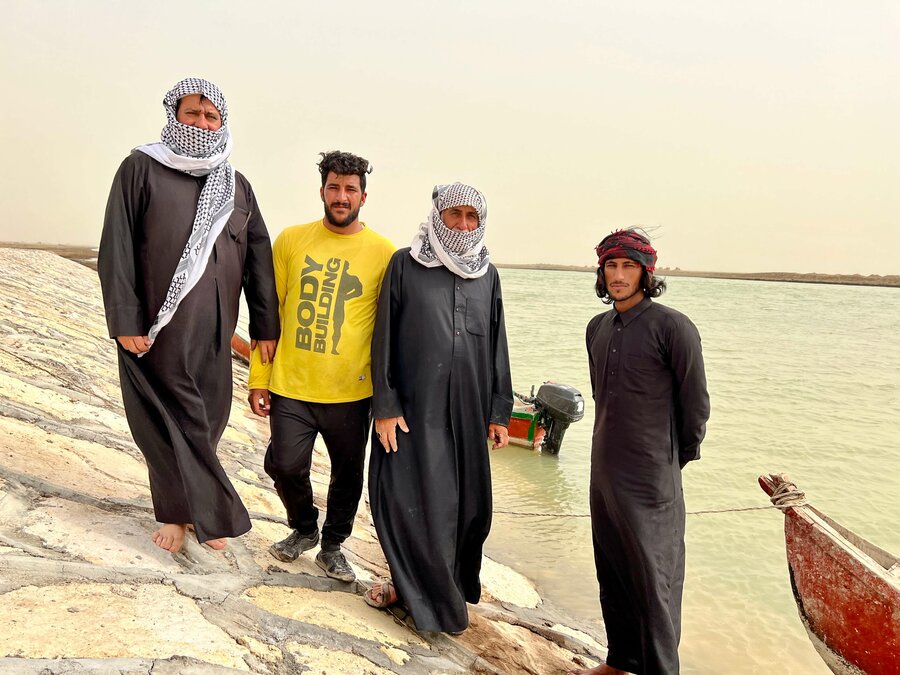
By constructing the mangrove nursery and engaging with local fishers, like Hakim and his family, WFP is empowering them to become custodians of their environment and working towards a future of sustainable food security.
WFP is also supporting fishers with training sessions that serve as a platform to acquire new techniques, refine existing practices, and gain a deeper understanding of sustainable fishing methods. These involve selective fishing, according to the season, and minimizing waste through proper fish handling and storage techniques.
As the first seeds of mangroves take root, Hakim says that he envisions a thriving ecosystem that will attract an abundance of fish and shrimp, boosting his income and improving the quality of life for his family and community.
Hakim’s children are not just fishers. They are also guardians of traditions passed down through generations. “I love fishing because it reminds me of who I am and guides me to what my children might become. When you look at the open sea, the possibilities are limitless,” he says.
This intervention was made possible through generous funding from the German Federal Ministry for Economic Cooperation and Development (BMZ).
